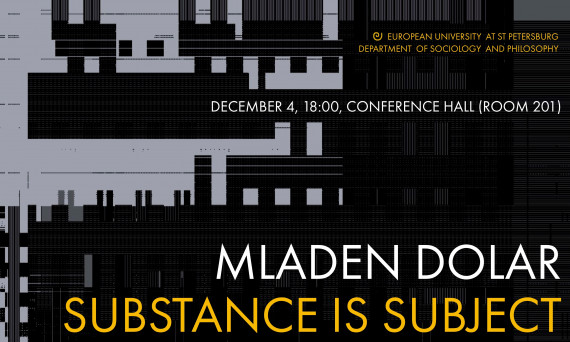Hegel famously maintained that no philosophy can be summed up in a single proposition or a first principle. As he said in the Phenomenology of Spirit: “Any so-called basic proposition or principle of philosophy, if true, is also false, just because it is only a principle.” Its truth can only lie in its development, its deployment, ultimately in a system, not in the assessment of some foundational proposition. Still, once in his career he nevertheless sinned against this view and proposed such a foundational proposition of his own philosophy: “In my view, which must be justified by the exposition of the system itself, everything hangs on apprehending and expressing the truth not merely as substance but also equally as subject.” Or briefly: ‘Substance is subject’.
The lecture will try to explore the value and the impact of this seemingly very simple sentence. Why would Hegel choose this particular proposition on which to pin the fate of his philosophy and on which everything depends? One will have to consider the way in which the notion of substance, the key concept of philosophy since its inception, has been traditionally understood and Hegel’s proposal of the radical criticism of the traditional notion of substance. One will have to investigate the particular new way in which Hegel conceived the notion of subject, going against the grain of what is usually understood by subjectivity (and also against the grain of the current discussion of ‘correlationism’). Finally, the lecture will consider the big philosophical divide between idealism and materialism, the central battleground of philosophy, and how Hegel’s recasting of substance changes the very parameters of this divide.
The lecture will proceed by an immanent reading of Hegel, focused on the Preface to the Phenomenology of Spirit, but it will also touch upon some contemporary debates (object oriented ontology, speculative realism etc.)















